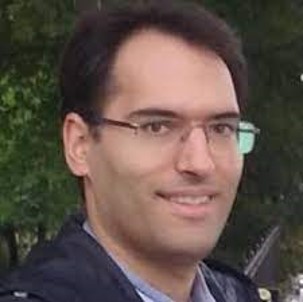(Starting date: 2022-02-01; Ending date: 2023-04-30)
summary
At the end of the 19th century, the French novelist Jules Verne published the book “Paris in the 20th century”, which envisioned tube trains stretching across the Atlantic Ocean. Nowadays, there are mainly four modes of transport (plane, car, train, and boat), but a fifth mode is becoming more and more real. The hyperloop intends to be a revolution in the transport systems by connecting countries through the ocean in a faster and more ecological way, when compared to the conventional transport systems. Basically, the hyperloop transport allows the high-speed transportation of passengers and goods inside a capsule, which travels through a tube with reduced internal pressure.
Scientists and engineers have now an important role to find reliable solutions to create this revolution. The implementation of hyperloop arises several challenges to all stakeholders, namely in what concerns the design of the infrastructure. Therefore, this project, hyperloop-Verne, intends to be a major contribution to connect the Hyperloop transport with biomimetics, in order to find reliable solutions. This link with biomimetics has been the way to find good solutions in several fields of engineering and technology. For that, FEUP and MIT teams will bring important synergies toward addressing the problem of how to explore and develop a concept of biomimetic-inspired oceanic hyperloop transport infrastructures.
Furthermore, this exploratory project (Hyperloop-Verne) proposes a new challenge for the hyperloop technology – to adapt this transport to operate in marine environments, with the aim of allowing intercontinental transport of goods and passengers. However, oceans can be very hostile for engineering structures, due to extreme temperatures, waves loads, salt water, interaction with the ecosystems, difficulties of maintenance and accessibility, which implies the development of new strategies to solve these problems not only related to the structural design and integrity but also at the material level.
Hence, the research plan of this exploratory project (Hyperloop-Verne) involves a consistent analysis of the hyperloop transport system considering a critical literature review and identification of the most recent developments. Then, different biomimetic approaches will be studied, namely examples of their application to the ocean environment. A bio-inspired design solution will be proposed and a representative model will be established to analyse different load scenarios. The material selection will also play an important role, based on the identification of marine environment requirements and characterization of material properties, such as fatigue-corrosion behaviour.
The Hyperloop-Verne project focuses on the following tasks:
Task 1: Critical analysis on Hyperloop transport infrastructures
In this task, a critical analysis and discussion on different hyperloop transport infrastructures developed and proposed until now will be conducted. Mainly, this first task intends to comprehend and explain the hyperloop technology, including what types of patents already exist, in order to adapt it to the oceanic environment in the future task of this exploratory work.
Task 2: Biomimetics inspired approaches used in oceanic systems
In this task, biomimetics approaches based on oceanic ecosystems and applied to engineering structures and mechanisms operating in marine environment are analysed and collected. After this task, different design solutions will be selected to solve the challenges related with the hostile and extreme conditions observed in the environment under analysis, including different types of depths to take into account current seaworthiness.
Task 3: Biomimetics inspired oceanic materials and structural systems
This task will be focused not only on material selection and characterization (e.g. S235, S355, S690), but also on finding and defining a structural design solution, considering the adversary conditions present on marine environments (e.g. corrosion). Therefore, design challenges, loading scenarios and material resistance requirements will be also addressed.
Task 4: Dissemination activities and exploitation
Lastly, in this Task, the dissemination of scientific results of the project will be guided through the publication of the scientific papers in scientific journals and newsletters for the community, participation in events, and networking with different international groups related to this topic.
Main Coordinators
FEUP

Abílio M. P. de Jesus
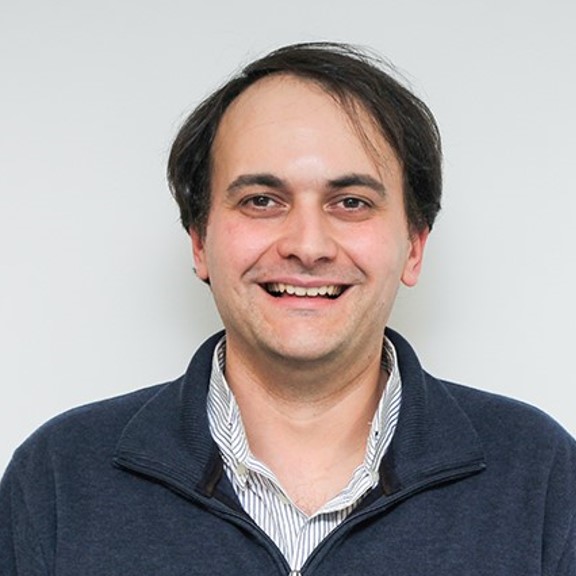
Diogo Ribeiro
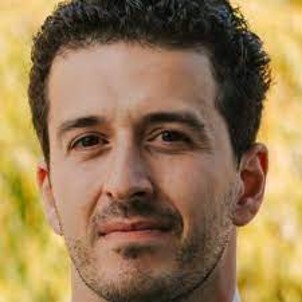
Pedro Aires Montenegro
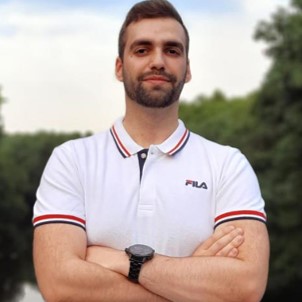
Carlos Rebelo

Ding Liao

João Nuno Silva

Paulo Mendes
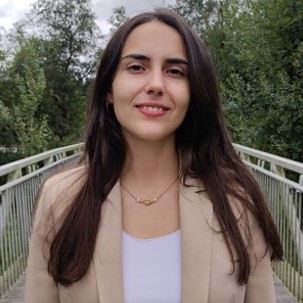
Rita Dantas
MIT
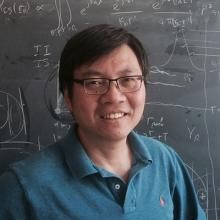
Yuming Liu
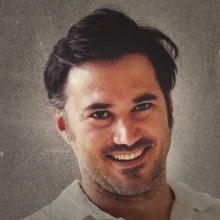
Grgut Tokic

Dick K.P. Yue

Michael S. Triantafyllou
UESTC
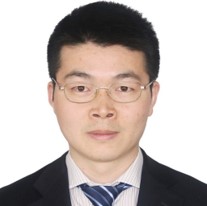
Shun-Peng Zhu
journal papers:
Rita Dantas, Michael Gouveia, Filipe G. A. Silva, Felipe Fiorentin, Abílio de Jesus, José A.F.O. Correia, Grzegorz Lesiuk (2023). Notch effect in very high cycle fatigue of a structural steel. International Journal of Fatigue, 177, 107925.
Mateusz Kowalski, Michał Böhm, Dariusz Rozumek, Amadeusz Kurek, José Correia (2023). Fatigue strength of new explosively welded steel-aluminum transition joint used in ships. Ocean Engineering, Volume 288, Part 1, 15 November 2023, 115990.
Correia, J.A.F.O., Vantadori, S., Berto, F., Zhu, S.-P., Huffman, P. (2023). Probabilistic fatigue damage modelling. International Journal of Fatigue, 176, 107889.
Correia, J.A.F.O., Zhu, S.-P., Berto, F. (2023). Fatigue in advanced materials: advanced methods and applications. Journal of Materials Research and Technology, 26, pp. 4902–4905.
Xin, H., Liu, J., Correia, J.A.F.O., Berto, F., Veljkovic, M., & Qian, G. (2023). Mixed-mode fatigue crack propagation simulation by means of Geq and walker models of the structural steel S355. Theoretical and Applied Fracture Mechanics, 123, 103717.
Ding Liao, José Correia, Yuming Liu, Shun-Peng Zhu, Abílio De Jesus, Rui Calçada (2023). Biomimetic-inspired approaches for oceanic Hyperloop system development: a survey. Ocean Engineering, (in submission).
Ding Liao, José Correia, Yuming Liu, Shun-Peng Zhu, Abílio De Jesus, Rui Calçada (2023). Critical analyses on Hyperloop™ system: the prospect of marine transportation. Ocean Engineering, (in submission).
Ding Liao, Lu Cheng, Milan Veljkovic, José Correia, Shun-Peng Zhu, Jasper Winkes, Koen Creusen (2023). Fatigue analysis on a thick steel plate with a central hole: a probabilistic perspective. Ocean Engineering, (under review).
Bruno Pedrosa, Carlos Rebelo, Iara Gripp, Joel de Jesus, Juan Pardal, José Correia (2023). Dislocation density-based fatigue approach for structural steel details, Structures, (under review).
Paulo Mendes, Mário Monteiro, José A.F.O. Correia, Manuel Vieira, Ana Reis, Cláudio Horas, Abílio de Jesus (2023). High-cycle rotating-bending fatigue performance of S690QL welded joints, Structures, (under review).
Conference papers:
Dantas, R., Gouveia, M., Silva, F.G.A., Fiorentin, F., De Jesus, A.M.P., Correia, J., Lesiuk, G. (2022). “Very high cycle fatigue behaviour of S690 structural steel”, 23 European Conference on Fracture (ECF23); Procedia Structural Integrity, 42, Pages 1676-1683.
Mendes, P., Dantas, R., Correia, J.A.F.O., Fantuzzi, N., Jesus, A.M.P. (2022). “Probabilistic fatigue strength modelling based on various statistical approaches for a double-side welded connection”, 23 European Conference on Fracture (ECF23); Procedia Structural Integrity, 42, Pages 1752-1761.
J.A.F.O. Correia – “Promoting multiscale fatigue to design reliable and sustainable Structures”, International Conference on Computational Methods & Ocean Technology (COTech), 30 November – 1 December, Stavanger, Norway.
Carlos Rebelo, Bruno Pedrosa, José Correia, Grzegorz Lesiuk – “Probabilistic Modeling of Fatigue in a Structural Component Using a Multiscale Material-Detail Approach”, Krajowa Konferencja Mechaniki Pękania 2023 (KKMP2023), Wednesday, 20-22 September, 2023.
Ana Dantas, Rita Dantas, Gonçalo P. Cipriano, Abílio de Jesus, Grzegorz Lesiuk, Carlos Fonseca, Pedro Moreira, José A.F.O. Correia – “Effect of seawater corrosion on the mechanical behavior of S690 steel”, 5th International Conference on Structural Integrity – ICSI 2023, 28 August – 1 September 2023, Funchal, Madeira, Portugal.
J.A.F.O. Correia – “Promoting multiscale fatigue to design reliable and sustainable Structures”, 5th International Conference on Structural Integrity – ICSI 2023, 28 August – 1 September 2023, Funchal, Madeira, Portugal.
Paulo Mendes, Mário Monteiro, Rui Pedro Silva, José A.F.O Correia, Abílio de Jesus, Manuel Vieira, Tiago Pereira, Ana Reis – “Microstructure and hardness properties of a S690QL steel welded joint”, 5th International Conference on Structural Integrity – ICSI 2023, 28 August – 1 September 2023, Funchal, Madeira, Portugal.
Rita Dantas, Michael Gouveia, Filipe G.A. Silva, Felipe Fiorentin, Abílio de Jesus, José A.F.O. Correia, Grzegorz Lesiuk – “An analysis of notch sensitivity in the VHCF fatigue region of S690 steel”, 5th International Conference on Structural Integrity – ICSI 2023, 28 August – 1 September 2023, Funchal, Madeira, Portugal.
Supported phd thesis
Danial Haselibozchaloee, Extreme Environments-Based Integrity of Decommissioned Offshore Platforms for Reuse into Green Energy Production Hubs, PhD Thesis, University of Porto, Portugal (ongoing).
Ding Liao, Probabilistic Fatigue Assessment of Engineering Notched Parts under Size Effect, PhD Thesis, University of Porto, Portugal (ongoing).
Rita Dantas, Fatigue behaviour of S690 structural steel for ocean systems applications, PhD Thesis, University of Porto, Portugal (ongoing).
supported msc thesis
Ana Dantas, Effect of seawater corrosion on fatigue behaviour of S690 structural steel, MSc Thesis, University of Porto, Portugal (concluded).
Carlos Rebelo, Modelação probabilística à fadiga de um componente estrutural usando uma abordagem multiescala material detalhe (in Portuguese), MSc Thesis, University of Trás-os-Montes and Alto Douro, Portugal (concluded).
Afonso Gabriel, Caraterização à fadiga de parafusos para turbinas eólicas (in Portuguese), MSc Thesis, University of Trás-os-Montes and Alto Douro, Portugal (concluded).


